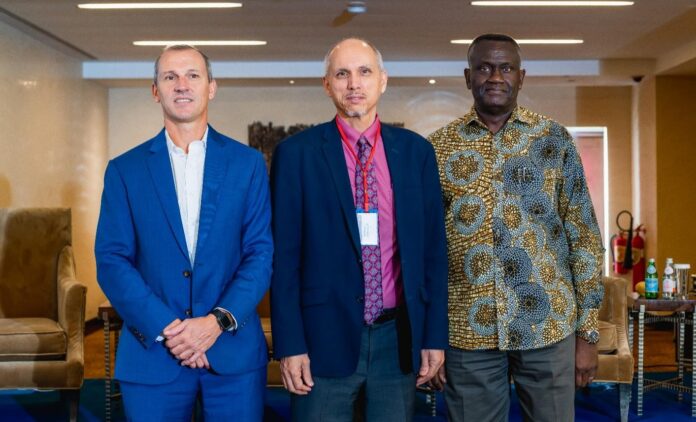
By Joshua Worlasi AMLANU
The USAID West Africa Trade and Investment Hub (Trade Hub) has made significant contributions to Ghana’s economy. Since launching operations in 2019, Trade Hub has played a key role in fortifying food security, advancing agricultural technologies and cementing the country’s status as a thriving manufacturing hub.
Through an US$8.5million in co-investment grants to 9 Ghanaian companies, Trade Hub has catalysed US$43.7million in private sector investment locally. The ripple-effects have been remarkable – US$17.9million in sales revenue generated, US$96.1million in exports (with US$87.5million to the U.S. under AGOA trade preferences), and most strikingly, over 20,000 new jobs created.
“The majority of those jobs have gone to women and youths, which is a priority for us,” said Robert J. Wheeler, Chief of Party, USAID West Africa Trade & Investment Hub, at the trade hub Ghana learning event.
Of the over 20,000 jobs created, about 17,500 have been filled by women and over 8,000 by youths, he added

While Trade Hub’s presence in the country has already paid dividends, Mr. Wheeler emphasised that the successes there account for just a fraction of the overall regional impact over the past few years.
“Thanks to 92 private sector partners across West Africa and US$83million in co-investment grants, we’ve catalysed US$408million in new investment and added 74,000 jobs regionally, over half held by women,” said Mr. Wheeler. “Almost US$610million in partner sales revenue generated, along with over US$200million in exports – close to US$110million bound for the U.S.”
The Trade Hub’s collaborative approach is a model for driving sustainable growth through private sector engagement.
One example is how the Trade Hub has enabled agritech company Warc Moves Ghana to modernise farming systems in the Upper West Region, assisting smallholder farmers to shift from subsistence outputs to commercial sales and break entrenched cycles of poverty.
Mechanisation services and climate-smart agricultural practices introduced by Warc Moves have now been deployed on nearly 4,000 hectares of farmland, enabling over US$5million in maize and soybean sales by local farmers over the course of the project thus far.
The shift to commercial outputs has increased and diversified incomes in Warc’s operational communities. With 76 partner communities now reached, Warc has created 115 jobs, mostly for women who are empowered to manage ‘Trading Hubs’ selling seeds, crop care products and mechanisation services.
“The Trading Hubs also purchase the harvested maize and soya, providing each of the women with an additional US$100 a month in income,” the Chief of Party explained.
Another initiative assisted by the Trade Hub is Nuts for Growth, which completed the construction of a large-scale shea butter production factory in November 2022. The factory can process 300 tonnes of shea nuts per day.
Nuts for Growth is not only enabling higher incomes for women in the shea value chain via improved processing, but the company has begun leveraging thousands of shea collectors who also cultivate soybeans in the off-season.
“Training women soybean suppliers to improve yields will allow Nuts for Growth to pay premiums for supply and provide women stable income year-round,” he said.
So far, Nuts for Growth has engaged 21,000 women in soy farming training and provided pre-financing support to nearly 20,000 women suppliers. The effort is part of a wider push to sustainably link rural farmers – especially women – to markets.









